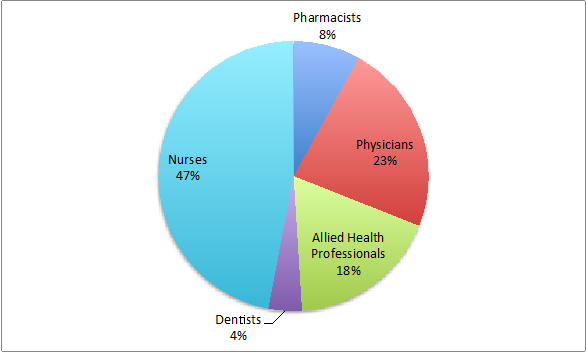eHealth and health informatics to facilitate the five-year strategic plan laid out by the Health Authority – Abu Dhabi.
In late December 2014, The Health Authority – Abu Dhabi (HAAD) revealed its healthcare sector strategic plan for the next five years. HAAD is the regulatory body of the Healthcare Sector in the Emirate of Abu Dhabi and ensures excellence in healthcare for the community by monitoring the health status of the population.
eHealth and healthcare informatics are a priority in the new healthcare sector strategy. HAAD plans to create a health information platform to enable providers to exchange data, which will facilitate the other six priorities.
In addition to a focus on eHealth, HAAD’s five-year healthcare strategy includes the following priorities:
- Increasing access along the continuum of care
- Improving the quality of care
- Attracting and retaining a workforce of quality healthcare professionals
- Enhancing emergency preparedness
- Promoting wellness and prevention
- Ensuring cost-effectiveness
Healthcare Is a Top Priority in Abu Dhabi
Commenting on the strategy, H.E. Dr. Mugheer Khamis Al Khaili, Chairman of HAAD said:
“The healthcare sector is a top priority in the Abu Dhabi Government agenda and we look forward to delivering the set outcomes as we move towards achieving Abu Dhabi’s vision 2030. We will work with both private and public sectors to ensure the implementation of the initiatives.”
In terms of continuum of care improvements for individuals, HAAD plans to reduce capacity gaps in services and minimize reliance on international travel for medical care, to improve healthcare services in rural areas, and to introduce mental health programs.
To improve quality of care, HAAD has launched an initiative called Jawda, which enables careful monitoring of quality metrics. The authority will also support research and innovation to drive improvements in healthcare delivery.
The number of licensed healthcare professionals in the Emirate exceeded 30,000 in 2013. HAAD is working on a comprehensive plan to attract, train and retain healthcare professionals with the focus on increasing the number of Emirati healthcare workers.
Abu Dhabi Healthcare Workforce by Profession

Source: Health Authority – Abu Dhabi and nuviun
Improving the healthcare sector’s preparedness for emergencies and disease outbreaks is a key priority in the strategic plan. HAAD will work with key stakeholders on further developing the Emirate’s communication infrastructure and establishing guidelines for responsiveness.
The wellness and prevention priority will address public health initiatives with a focus on reducing the prevalence of both communicable and non-communicable diseases.
Cardiovascular disease accounted for 36.7% of all deaths in 2013. Without major changes, these rates are set to increase further as the young population ages.
In an effort to bring about lasting lifestyle changes, all adult UAE nationals are eligible for the Weqaya (i.e., prevention) screening program. Every three years, adults over the age of 18 are eligible for the screening, which identifies an individual’s risk of developing cardiovascular disease.
A dedicated website produces personalized Weqaya reports, explaining screening results and connecting individuals directly to relevant health and wellness services.
In addition to Weqaya, HAAD plans to focus on preventing injuries; improving maternal, prenatal, and pediatric care; reducing the burden of hereditary disease; and improving oral health, especially in children.
Finally, HAAD will ensure that the healthcare sector is cost effective. The Authority has developed a number of initiatives to monitor healthcare utilization, and plans to optimize spending on medical products, healthcare insurance premiums, and medical laboratories.
Abu Dhabi: Leading the Way in Telemedicine and mHealth
Abu Dhabi already has some eHealth infrastructure in place to help support its five-year strategic plan. In the Emirate, patients are encouraged to support themselves at home when appropriate through home care and an integrated use of telemedicine.
HAAD’s innovative website provides prevention information, a BMI calculator, a doctor location service, the opportunity to live-chat (during business hours) with representatives from a poison-control center, as well as search for HAAD-approved medications or for health insurance providers.
Additionally, patients can call any time of the day or night for a telephone-based consultation related to non-emergency medical conditions through the Abu Dhabi Telemedicine Center.
A nurse triages the patients, creating an electronic medical record for the call and scheduling a physician callback. If the nurse feels an in-person exam is required, the call center provides recommendations for nearby providers that are covered by the patient’s insurance plan.
Jenn Lonzer has a B.A. in English from Cleveland State University and an M.A. in Health Communication from Johns Hopkins University. Passionate about access to care and social justice issues, Jenn writes on global digital health developments, research, and trends. Follow Jenn on Twitter @jnnprater3.

